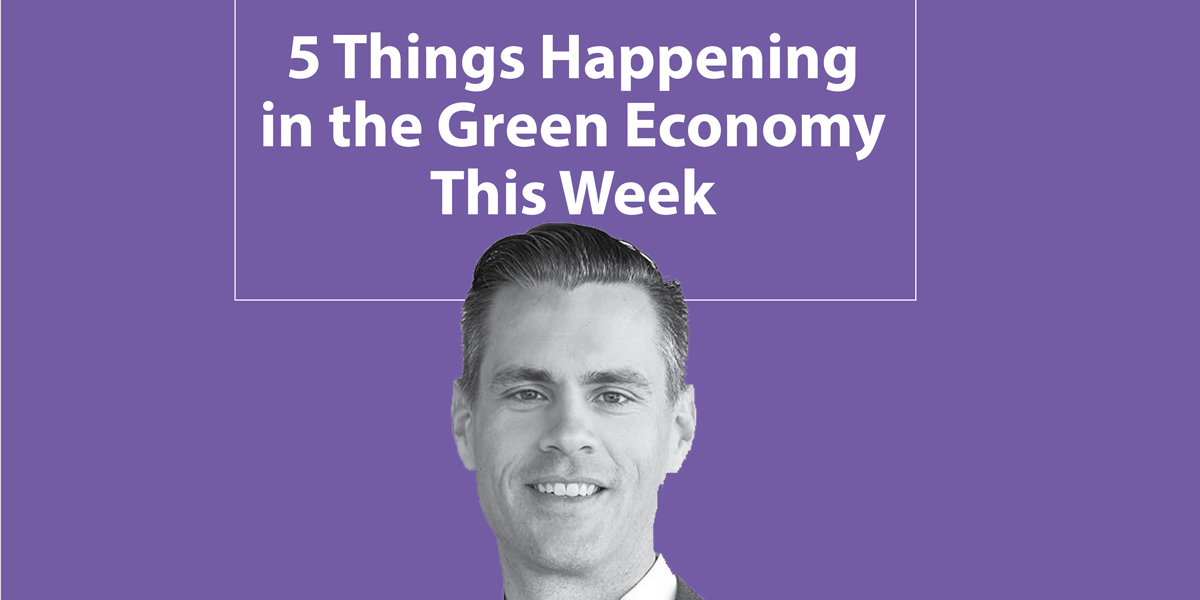
Every two weeks, Mike Moffatt, Senior Director at SPI, explores five things to watch in the green economy in a segment for Smart Prosperity: The Podcast. Click here to listen to this week's episode.
1) Canada plays host this week to the World Circular Economy Forum. It’s the first time that the event - expected to draw 8,000 virtual delegates from 130 countries - has been hosted in North America. The event is about eliminating waste from the global economy, which could lead to 25 trillion dollars in economic gains and a 50 percent reduction in greenhouse gas emissions. You can learn more about WCEF2021, and SPI’s partnership role, here.
2) The Biden administration in the US has tabled a plan that would see almost half of the country’s electricity supply come from solar power by 2050. Currently solar power contributes only 4 percent to US electricity supply. Such an increase will require the country to double the amount of solar power installed every year over the next four years and then double it again by 2030.
3) The world's largest Direct Air Capture project is set to be built in Iceland. The partnership between the Icelandic government and Swiss company Climeworks, is expected to suck 4,000 tons of carbon dioxide out of the air every year. It’s a big step for an early-stage technology, which many models show will need to play a major role in meeting the world’s climate goals.
4) The shipping industry is proposing important steps to reduce greenhouse gas emissions. Last week two leading shipping associations proposed a dedicated price on carbon pollution. They are proposing that the proceeds from the carbon levy go towards building port infrastructure for cleaner shipping fuels like hydrogen and ammonia.
5) Brazil, the world’s largest beef exporter, has approved a feed additive that reduces methane emissions from cattle. Emissions from cattle and other livestock are responsible for 44 percent of the world’s methane emissions and almost 15 percent of total greenhouse gas emissions. The feed additive has been found to reduce methane from cattle by as much as 55 percent.
Listen to the full segment, and plenty of other great content, in today's new episode of Smart Prosperity: The Podcast. Our podcast provides fresh takes on the current affairs, politics, research and business of the clean economy. New episodes posted every two weeks.